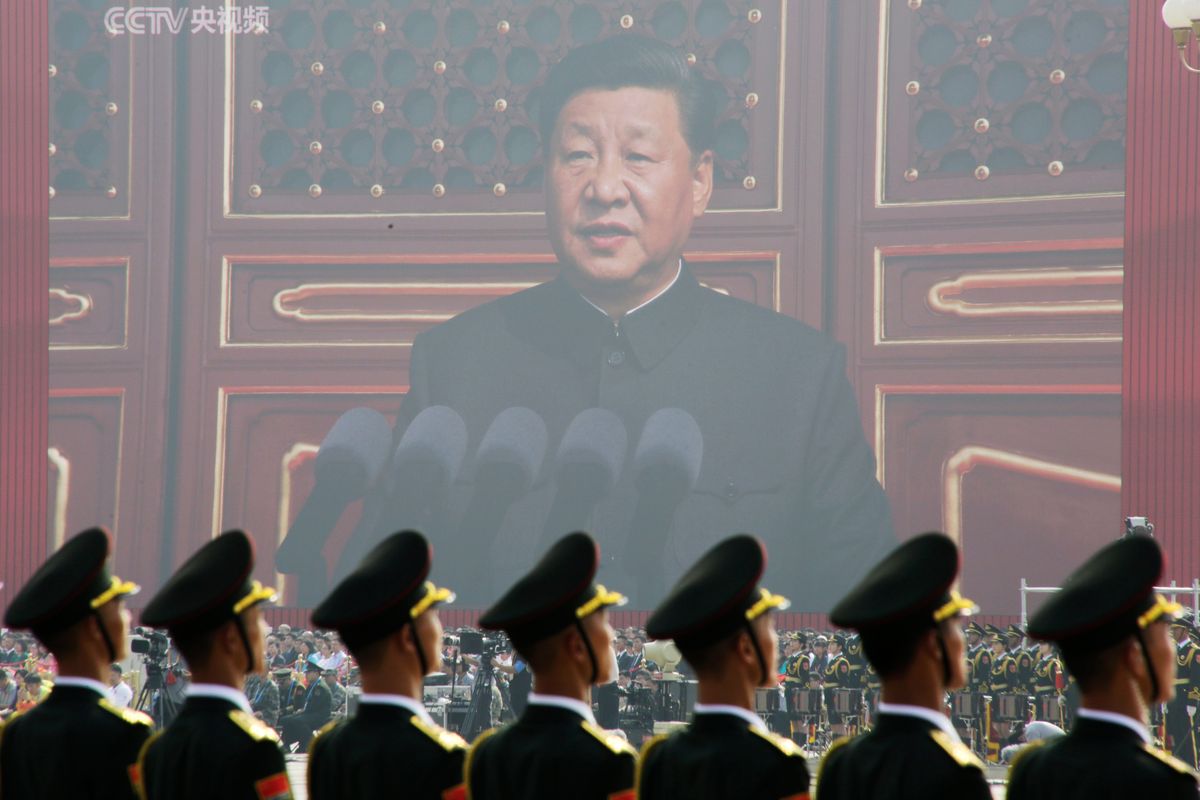Deng Xiaoping famously argued that China would be wise to hide its strength and bide its time. Xi Jinping, China's current leader, has made clear that he thinks the days of hiding and biding are over.
President Xi has called for "a new era" for China that moves his country "closer to center stage" in world affairs. He has offered his country as "a new option for other countries," an alternative to Western-style democracy and its often erratic approach to problem-solving.
A new survey from the Pew Research Center offers some interesting responses to this newest phase of China's rise. The report is based on interviews conducted in nine European countries plus the US, Canada, Japan, South Korea, and Australia.
What do people in these 14 countries think about this show of strength and flash of ambition? There are four big takeaways.
"Negative views of China [are] on the rise." Across the 14 countries, China's median unfavorability rating stood at 73 percent. In the US, opposition to China's authoritarianism is a subject of rare agreement among Republicans and Democrats. In Asia, China's more assertive role provokes anxiety. Even in Europe, where China provokes less fear, mistrust is on the rise. A crackdown on democracy in Hong Kong and the internment of as many as one million Uighur Muslims in "education camps" has drawn fierce criticism from European leaders. Earlier this year, the European Commission accused China of waging an ugly disinformation campaigns at the height of the COVID-19 outbreak and labelled China a "systemic rival."
"Most think China has not handled [the] COVID-19 outbreak well." Speaking of the novel coronavirus, many blame Beijing for hiding the threat it posed before it spread beyond China's borders and for silencing Chinese doctors who tried to expose it.
In 12 of the 14 countries surveyed, a higher percentage thought the US had done a worse job than China in dealing with the coronavirus outbreak, but the origins of the virus continue to raise questions about how many lives might have been saved around the world if China had been open about the risks in late 2019.
There is "little confidence in President Xi to do the right thing in world affairs." According to the report, a median of 78 percent, and at least seven in ten respondents in every country surveyed, said they have little or no confidence that he will "do the right thing."
It's little surprise that these numbers have risen sharply over the past year when, beyond China's COVID cover-up and its repression in Hong Kong and Xinjiang, we add its aggressive territorial claims in the South China Sea, its border fights with India, new attention paid to the scale and sophistication of its domestic surveillance network, stories about the poorly made products it shipped to Europe as part of coronavirus aid packages, and its belligerent response to criticism.
"In Europe, more see China as [the] world's top economic power than [the] U.S." There is also a broad recognition of China's growing strength and importance. In every country except the US, Japan and South Korea, more survey respondents pointed to China as the world's lead economic powerhouse. In part, this reflects the reality that China may be the only major economy to expand in 2020. Maybe it's also an expectation that China will continue to grow faster in the future than its western rivals.
The bottom line: As China continues to offer itself as an alternative to Western international leadership and a solution to more of the world's problems, it can expect both to earn more respect and to provoke more resistance.



















